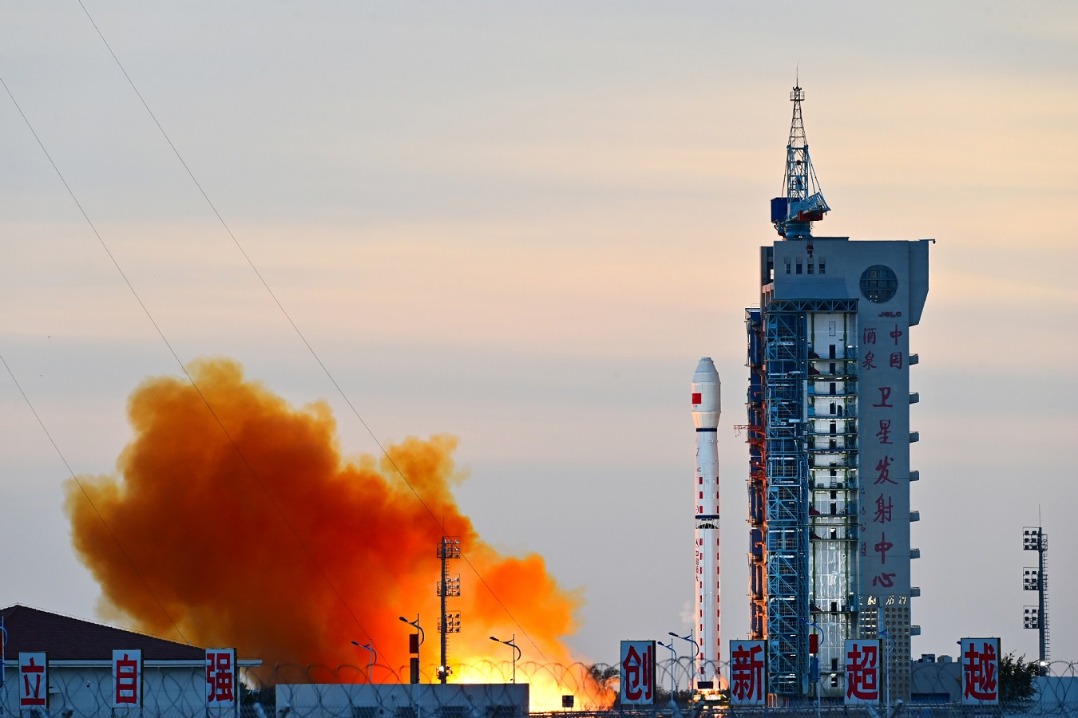Base aims to be Silicon Valley of agriculture


Beside Yazhou Bay in Sanya, Hainan province, the Nanfan Scientific and Research Breeding Base stands as a testament to China's dedication to agricultural innovation.
The base has developed over 70 percent of the country's new crop varieties and now aspires to leverage technological innovation to contribute to global food security, aiming to become the "Nanfan Silicon Valley" of agriculture.
Chen Fan, a deputy to the National People's Congress and director of Hainan Innovation Academy for Seed Design, has been at the forefront of the transformation.
Having dedicated two decades to breeding research at the Nanfan base, he envisions Nanfan Silicon Valley as being akin to Silicon Valley in the United States, emphasizing technological innovation and the integration of capital, industry and innovation chains.
For Chen, the essence of building Nanfan Silicon Valley lies in it being a true science park rather than an industrial zone. He said it will be a place where research activities align seamlessly with industrial goals, and where industry demands for innovation are met with cutting-edge research, propelling the development of the industry to the next level.
"What we need most now are the new quality productive forces," he said. "So that we can use the development of high-tech enterprises to make the transition from traditional to modern agriculture.
"What we are doing now in the Nanfan base is designed breeding, which means that the crop varieties are specifically designed for the environmental conditions in which they will be cultivated in the future. It's like tailoring clothes, but the design is completed at the genetic level.
"These genetically designed seeds promise greater application scenarios, meeting the demands of industrialized agriculture and enhancing precision in farming practices. It's hoped that in the future we will produce specific seeds for companies based on what they need; whatever they require, we can create for them."

Nanfan does not refer to a specific location, but rather a unique breeding process that makes the most of warm winters. Located south of Wuzhi Mountain in Sanya, winter temperatures in the area consistently exceed 16C, making it an optimal environment for seed breeding.
While northern parts of China experience freezing temperatures in winter, the area's mild climate allows seeds to undergo an additional breeding cycle, which makes the region a natural breeding accelerator and attracts many scientists to do breeding research in winter.
"We have been doing Nanfan since the 1970s, which has significantly contributed to ensuring food security in China," Chen said. "Looking forward, we hope to develop strategic crop varieties in Nanfan Silicon Valley and contribute to global seed industry development, aiming not only to feed China but also to help feed the world."
The Nanfan base has already become a hub for international agricultural cooperation. According to official data from the provincial Department of Agriculture and Rural Affairs, Hainan has trained over 5,000 personnel from 99 tropical countries and is developing the China-Cambodia Tropical Eco-Agriculture Cooperation Demonstration Zone in Cambodia to facilitate local agricultural development.
Chen said the base is also working on an international soybean research collaboration platform.
"We are studying the possibilities of cultivating Chinese-developed soybean varieties in Brazil, which can not only help to improve Brazil's local soybean varieties but also bring more profits to local farmers," he said.
"Our rice varieties, including Yuan Longping's high-tech hybrid rice, have made their way to many countries. In the future, we also hope to gradually export our soybeans and corn varieties to more places."
- Hong Kong relaxes visitor visa application criteria for Cambodia, Laos, Myanmar
- Aspiring students go head-to-head in college innovation competition
- China's investment in geological exploration rises for three straight years
- Optimized legal services contribute to development of rule of law
- Chinese museum commemorating 'two bombs, one satellite' renovated
- Dongying hosts intl roundtable on sustainable wetland development




































